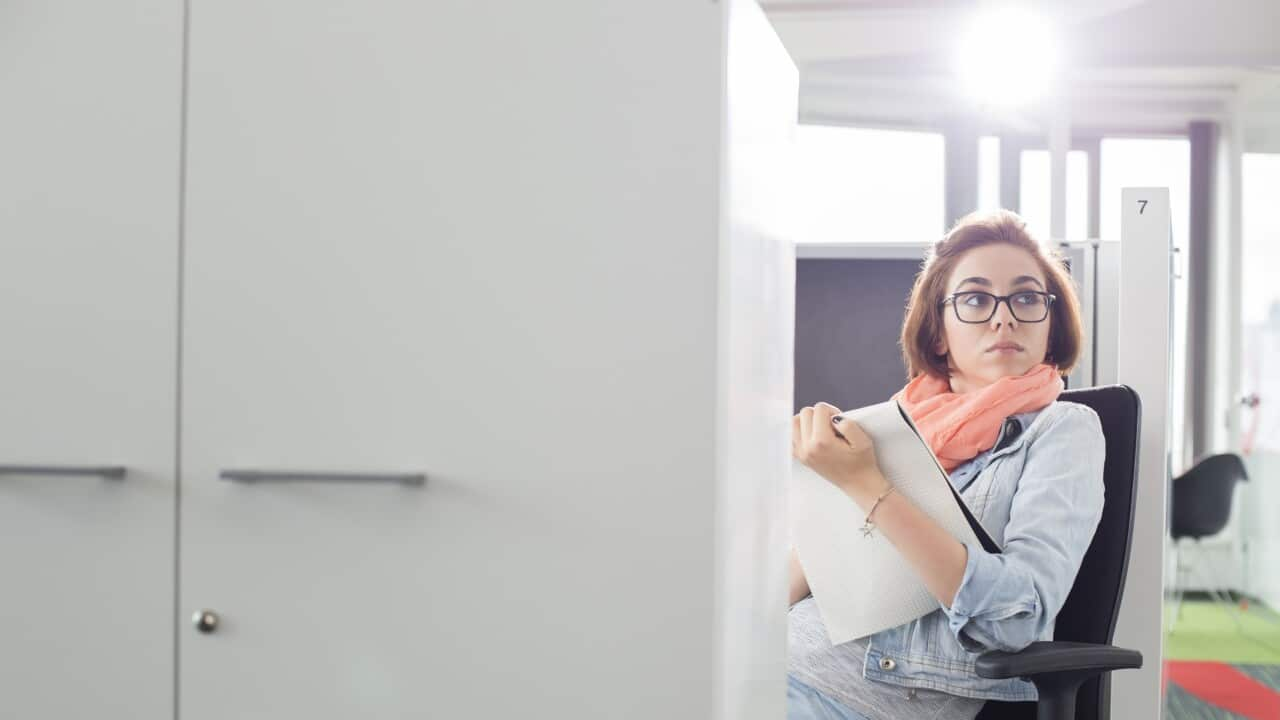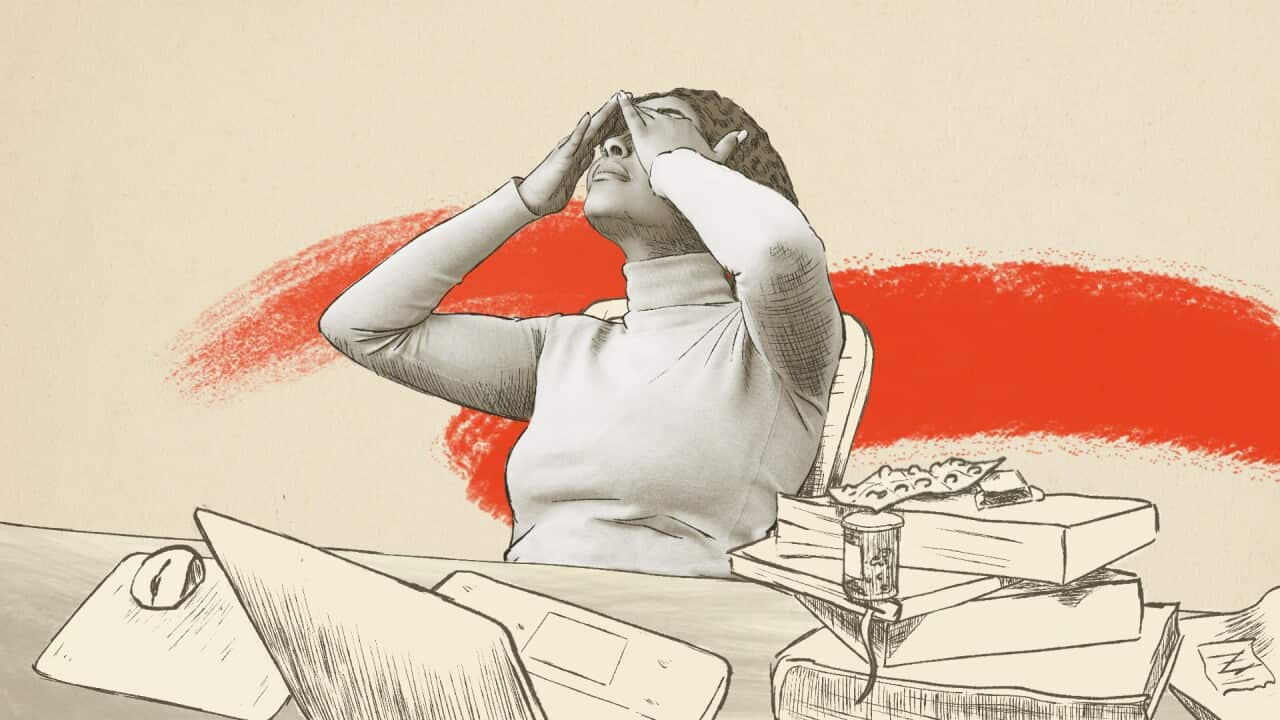Key Points
- Women account for about 15 per cent of the construction industry and less than 3 per cent of trade occupations.
- Jo Farrell, a leader in the industry, is aware of sexism, sexual harassment and assault against female workers.
- She says there needs to be zero tolerance for such behaviour.
This article contains references to sexual assault.
The trade and construction industries have long been dominated by men.
According to a March report from Master Builders Australia, women make up about 15 per cent of the construction industry and less than 3 per cent of trade occupations.
The latter figure has remained virtually unchanged since the late 1980s.
So, why is this still the case?
A voice for women tradies
Jo Farrell is general manager of Kane Constructions and founder of Build Like a Girl, a not-for-profit encouraging women to pursue trade occupations.
She was also the 2024 ACT Australian of the Year for her work championing young women in this male-dominated space.
"It came about from rage and frustration, to be honest," Farrell said.
When she joined the company she works for in a leadership role, women in the industry began getting in touch.

Women account for less than 3 per cent of those in trade occupations in Australia. Source: Getty / Louise Beaumont
She said women shared their stories about the barriers and issues they had faced in the industry.
"It was like a tidal wave," Farrell said.
"Just horror stories about behaviours, women were still experiencing the things that I'd experienced almost three decades ago."
High drop-off rate for women who enter trades
There is a 72 per cent drop-off rate for first-year female apprentices, according to a 2022 report from the Department of Employment and Workplace Relations.
Apprenticeships cover trade and non-trade occupations — but trades such as electricians, plumbers, and builders make up 60 per cent of Australian apprenticeships.
Farrell said while part of this retention issue was unmatched expectations of what the job entailed, sexism played a significant role.
"We have had a lot of younger women come forward and say that they don't get the level of training that they should be getting.
"I had a young lady ring me saying, 'Look, I'm a first-year carpenter, there's another young man who's a first-year carpenter, but I'm the one who goes off and has to get the lunches every day and clean the toilets and he doesn't.'"
LISTEN TO

'Our industry doesn't want to have that reckoning': where are all the female tradies?
SBS News
13/09/202408:09
Sexual assault at work
It's not just sexism, but also sexual harassment and sexual assault that some women in trades and construction are facing.
"[There has been] a really bad run over the past few months from late last year to early this year, with a number of younger women coming forward to me reporting incidences," Farrell said.
She said she found many women who experienced harassment or assault did not properly understand their rights.
"They were really scared about talking about it, they thought they'd lose their job. There was a culture on-site of, 'Oh, it's just a misunderstanding, it's a miscommunication.'
"It wasn't being taken seriously by supervisors and managers."
Prevailing gendered views
Fiona Macdonald is an industrial and social policy director at the Centre for Future Work at the Australia Institute, and said attracting women into the trades was difficult because of prevailing views around trades being a male field.
"In an industry where recruitment is really informal, often, and it's who you know, it's somebody women don't know, they don't have role models, they don't see female family members or other people that they know going into those trades in schools."
Macdonald said once women got into the industry, they discovered the environment was often designed with men in mind.
"Facilities can even be really poor for women."
Macdonald said reforming apprenticeships to become more accessible to women could be beneficial to the workforce, particularly during .
Modelling released earlier this month by Master Builders Australia indicated the nation is likely to fall well short of its goal of constructing 1.2 million extra homes by July 2029.
The modelling showed Australia was on track to produce 1.03 million homes within that timeframe, a shortfall of 166,000 properties.
Housing Minister Clare O'Neil said at the time that a "chronic shortage of construction workers" was partly to blame for the predicted shortfall.
"We need 90,000 more workers in the residential construction sector to get the houses built that we need," she said.
Macdonald said successful strategies for recruiting women in the past have been when large organisations take on a group of women.
She said that way there would be a "critical mass" of women going through training together and supporting each other on-site.
'Key elements' needed for success
Habitat for Humanity Australia's Habitat Women program trains women with the skills and confidence they need to enter construction and trades.
Queenie Tran is the head of programs in Australia for the organisation, which works to provide stable and secure housing for low-income families and vulnerable people.
"We're really focused on providing some of those early and basic skills as a step in through the door," she said.
"Oftentimes they find barriers, whether it's just people not seeing that women are going to be able to be comparable in terms of aptitude and skill as some of their male counterparts, or just not having the right flexibility and understanding as to what women might need to be able to be successful in this sector."

Women are not always catered for adequately on construction sites. Source: Getty / Louise Beaumont
"Once women do get those opportunities, they rapidly advance through the ranks and are great candidates for supervisory roles and being leaders within the sector," she said.
"Many times, it's that confidence to be able to be part of this sector is the key elements."
Steps towards progress
Farrell said she had seen positive changes in recent times, especially through programs her organisation had worked on to train and recruit young women and non-binary people into the industry.
"I think we've been pretty active in breaking down the stereotypes that have existed, particularly for younger women," she said.
"In Queensland recently, they've had an 8 per cent increase in first-year female electricians taking up a trade, which is a monumental amount.
"A lot of the breaking down the stereotypes around the physicality and sort of all those generalist excuses about why women can't do this work.

Source: Supplied
A reckoning for the industry
Farrell said governments and businesses have to play greater roles in getting rid of sexist cultures in the industry.
"Part of the whole process of dealing with a problem is acknowledging there's one in the first place," she said.
"Our industry doesn't want to have that reckoning, they don't want to turn the lens inward.
"If we want to see the change, we actually have to change the behaviour and we have to start being accountable."
Farrell called for legislation and policy reform that provided for a zero-tolerance policy.
"It's about open reporting about transparency, and you shouldn't be winning work if you haven't got a safe site where women can come and fully participate day in, day out, without being harassed or having some form of different treatment."
If you or someone you know is impacted by sexual assault, call 1800RESPECT on 1800 737 732, text 0458 737 732, or visit . In an emergency, call 000.












